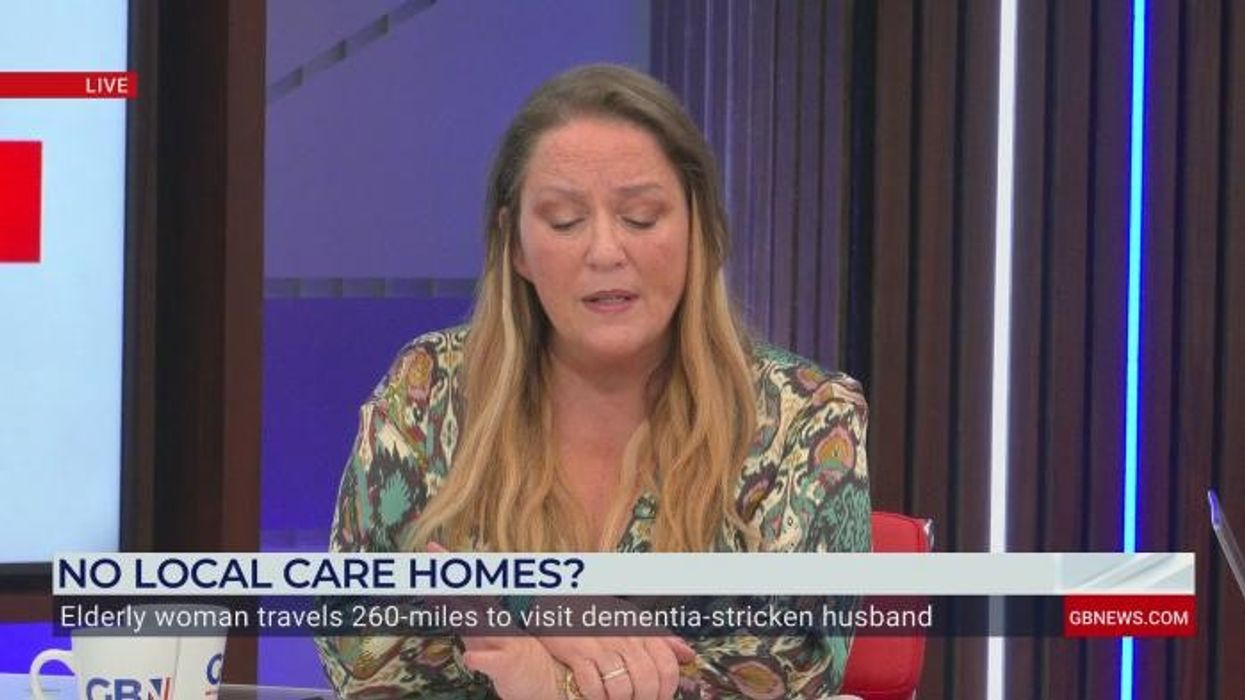'I had to sell my parents' home to fund their care' - Daughter's £175,000 a year bill exposes scale of UK care crisis

Many families are now paying nearly double what local authorities pay for identical services
Don't Miss
Most Read
The UK faces a £1.1 billion shortfall in adult social care funding by 2028/29, according to exclusive new data from Lottie.
As Government support lags behind demand, self-funding families - like Sarah's - are being forced to pay nearly double what local authorities do for the same care.
England's adult social care system faces a £1.1 billion funding shortfall by 2028/29, despite the Government's recent announcement of a £4 billion increase in social care support.
The analysis reveals a growing crisis that is increasingly shifting the financial burden onto self-funding individuals and their families.
This funding gap threatens to deepen an already critical situation across the UK, with more families expected to face unsustainable care costs.
The disparity between what private payers and councils pay for the same care has reached alarming levels, creating a two-tier system that penalises those who have saved for their retirement.
According to Lottie, the regional disparities are stark. In Blackpool, self-funders pay £1,166 per week whilst local authorities pay just £600 for the same care home services.
The gap is similarly pronounced in Wolverhampton, where private payers are charged £1,061 compared to the council rate of £631.40.
Cornwall shows the highest costs overall, with self-funders paying £1,478 weekly against the local authority rate of £1,002.
These figures from Lottie's analysis demonstrate how the underfunding crisis has created a system where those who pay privately effectively subsidise the care of state-funded residents.
The nearly double pricing for self-funders across multiple regions highlights a fundamental inequity in how care is funded and delivered in England.

Some people are facing an increase in care home fees
| GettyThe human cost of this crisis is exemplified by Sarah, who contacted Lottie after learning her parents' care home fees would increase by £21,173.60 annually. The 13.85 per cent rise would push their combined care costs from £153,600 to £174,773.60 per year.
"I was shocked by the total increase in the cost of care, which came to an additional £21,000 a year," Sarah said. She had been paying £1,600 weekly for each parent before the increase.
After questioning the substantial rise and receiving explanations citing employer national insurance changes and general inflation, Sarah made the difficult decision to relocate both parents to a new care home.
She had promised them after selling their home to fund care that she would "make every penny count".
 Care home costs have risen by nearly 20 per cent in the last year | GETTY
Care home costs have risen by nearly 20 per cent in the last year | GETTY The lack of transparency in pricing has compounded families' financial stress. Sarah discovered that services previously included in weekly fees were now charged separately, including toiletries, podiatry appointments and hairdressing.
"One specific charge I have been paying monthly is for toenail cutting appointments for both my parents, which cost £40 per month," she explained. These additional charges meant the actual weekly cost exceeded the quoted £1,600.
Sarah also highlighted inadequate notice periods for fee increases. Despite contracts specifying 28 days' notice, she felt this was insufficient time to review, question or negotiate increases before considering alternatives.
"There doesn't seem to be a clear set standard increase across the sector and the lack of transparency has left me feeling confused and frustrated," she said.

The emotional toll on families facing these decisions cannot be understated
| GettySarah reflected, expressing particular concern about the impact on her parents' wellbeing as they adjusted to new surroundings and carers.
She said: "The emotional toll on families facing these decisions cannot be understated. It has been a stressful decision to uproot my parents and move them to a new care home."
Her experience illustrates the broader challenges confronting families across the UK. With the predicted £1.1 billion shortfall by 2028/29, more families will face impossible choices between quality care and financial sustainability.
As Government funding continues to fall short of need, this crisis will only intensify, affecting countless more British families.











